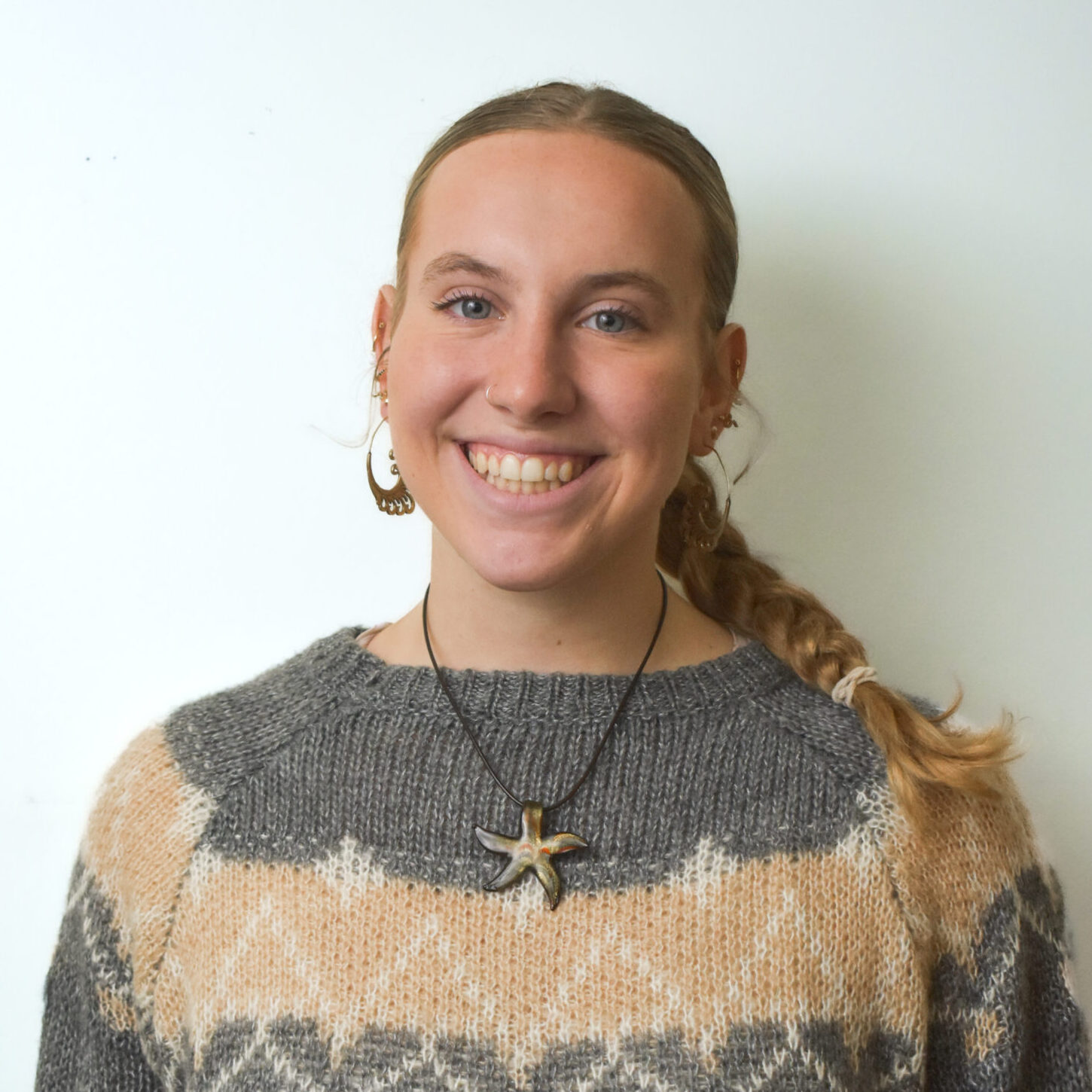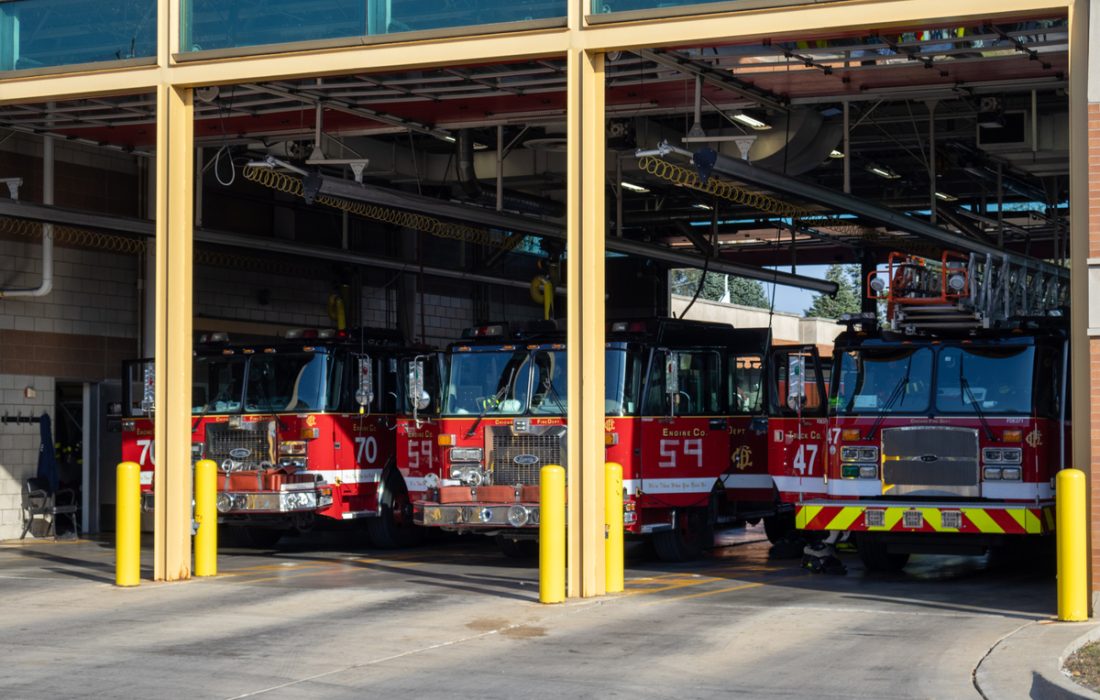Chicago’s Crisis Assistance Response and Engagement program has undergone changes since becoming staff exclusively by employees of the Chicago Department of Public Health.
Fire & Police Employees Removed From Chicago’s Mental Health Emergency Response Team
Chicago’s Crisis Assistance Response and Engagement program, an emergency mental health response team, transitioned Sept. 23 to being staffed solely by Chicago Department of Public Health employees, including behavioral health clinicians and emergency medical technicians.
The program, which began its piloting process in September 2021, was previously composed of behavioral health clinicians from CDPH, paramedics from the Chicago Fire Department and Crisis Intervention Team trained officers from the Chicago Police Department, according to Sr. Director of Crisis Services at CDPH Tiffany Patton-Burnside.
“By directing 911 mental health calls to public health teams, we are ending the criminalization of these issues and helping to ensure people who are unhoused or experiencing a mental health challenge get the treatment and support they need,” Mayor Brandon Johnson said in a Sept. 25 press release.
The team will now be made up of licensed clinicians, including social workers and counselors, who have social work and professional counselor licensures, as well as EMTs, Burnside said. The program also has a team of community support case managers, who follow up after an incident to get a client the needed resources.
“Science says you can’t be in two places at once, right?” Burnside said. “But if the team is responding to 911 calls, they cannot be doing follow ups with individuals that they may have seen the day before, two weeks before, or whatever the cadence is, and so we needed a dedicated team to be able to do that follow up work.”
Burnside said the main reason Crisis Intervention Team trained police officers and fire department paramedics were taken off the team was because the current team was able to learn from other public safety members to build infrastructure and move forward with the team.
Despite the new team model being staffed solely by CDPH employees, Burnside said there’s still room for partnership, especially when identifying the best resources for each individual 911 call.
“Our goal is to ensure, as a city, that we’re sending the appropriate resources to the people in need,” Burnside said. “Whether that is Police, Fire, EMS, whether it is Streets and [Sanitation], whether it is Water Department or Animal Control, we just want to, as a city, make a coordinated, concerted effort to ensure that the people of the city have their needs met in the right ways.”
Many CIT officers and paramedics still partner with the CARE team on a referral basis and often help each other, according to Burnside.

(Katrina De Guzman/The Phoenix)
“Protecting public safety will always be a collaborative effort,” Chicago Police Supt. Larry Snelling said in the Sept. 25 press release. “Having mental health clinicians available to respond to select 911 calls for which they are well equipped will enable all of us to continue building safer communities together.”
Burnside said the pilot stages of the program which tried out different styles of teams, including a multidisciplinary response team and an opioid response, intended to find out what team make-up would be most successful in the field. The CDPH has now settled on a public health led model.
“The intention of the pilot was to test out different models of the program, of alternate response programs,” Burnside said. “So we tested different model types within the pilot to see what will be the best fit for Chicago.”
For individuals experiencing a mental health crisis or episode, Burnside said it’s a foregone conclusion those people need trained professionals responding to the crisis. Successful strategies aren’t “one size fits all,” meaning they had to find the best team for Chicago.
The CARE team gets dispatched from 911 directly and are able to hear the calls when they come through, according to Burnside.
In a primary dispatch, the call will be screened and marked as eligible for the CARE team, meaning there’s no physical violence or weapons present on the scene, and there will be no police assist, Burnside said.
When police arrive at a scene not originally eligible for CARE but later realize there are behavioral health components, the team will respond to provide assistance, according to Burnside. They may also respond to a call, alongside police, which they believe may have behavioral health components.
Burnside said 911 call volume data with mention of behavioral health crisis was used to determine where the team would be located since it doesn’t have the means to be in every police district. The CARE team was expanded into Rogers Park, West Ridge and parts of Edgewater in the summer of 2023, The Phoenix previously reported.
Jennifer Gaross, a licensed clinical social worker who has worked with the CARE team since its inception, said she worked on a similar team in Dallas but moved back home to Chicago because she wanted to help with the development of the program.
Gaross said the team’s success comes from a comprehensive public health response strategy and specialized training.
“Not everybody can respond to mental health crises if they don’t have that specific skill set,” Gaross said. “We bring a special skill set and knowledge to the field that other 911 responders don’t have.”
The mayor’s office reported dispatches handled by the CARE team over the last years have resulted in zero arrests and a use of force in less than 0.1% of instances, according to the press release.
Brit Holmberg, a 2010 Loyola School of Social Work alum and advocate with Chicago Treatment Not Trauma campaign, said there’s an extremely disproportionate number of police officers to mental health providers employed in the city of Chicago, which makes it difficult for the resources to be used in every situation.
The Treatment Not Trauma campaign advocates for non-police response teams to be used in the case of a mental health crisis and for the reopening of public mental health clinics, according to their website.
Since it costs a lot to have cops on the streets, Holmberg said, it would be a better use of the budget to instead invest in mental health providers, who would be able to better handle a mental health related situation without potential escalation or violence.
“If all we’re doing is just sending cops out when people actually need mental health treatment, that’s not a good use of resources,” Holmberg said. “So this actually creates a much more efficient use of resources, and it gets people the help they need, rather than again, being potentially incarcerated or criminalized.”
Dr. Marion Malcome, an assistant professor of social work and licensed clinical social worker, said the biggest benefit of having mental health providers respond to a situation rather than police is they’re knowledgeable of symptomatology and can recognize signs and symptoms of various mental health conditions.
“We know what might look like paranoia. For example, what might be paranoia in the context of a first episode psychotic break or a first episode of schizophrenia,” Malcome said. “We can identify those with mental health training. We can identify that being a symptom, perhaps of some kind of psychotic process, versus seeing it as aggression or resistance to arrest.”
Prior to getting her Ph.D., Malcome worked in the field as a social worker for 10 years. She said working with police officers was often challenging because of the vastly different ways they were trained to respond and almost contradictory philosophies on how to care for an individual, resulting in harmful experiences for both herself and the person experiencing crisis.
“Many people do have a reaction or an experience of fear when police are present,” Malcome said. “That could exacerbate one’s paranoia, that could exacerbate one’s anxiety, or irritability, which can make the mental health challenge or crisis worse.”
While the mental health stigmas often target specific groups, such as people experiencing homelessness or poverty, Malcome said anyone can be affected by mental health challenges and considers the CARE team a win for holistic care approaches in Chicago.
-

Julia Pentasuglio is a second-year majoring in multimedia journalism and political science with a minor in environmental communication and is one of two Deputy News Editors for The Phoenix. Julia previously interned on the Digital Media team at North Coast Media, a business-to-business magazine company based in Cleveland, Ohio. She has also written freelance for The Akron Beacon Journal. Outside of her love for news and journalistic storytelling, Julia enjoys camping, biking, skiing and anything she can do outside.
View all posts
Topics
Get the Loyola Phoenix newsletter straight to your inbox!


